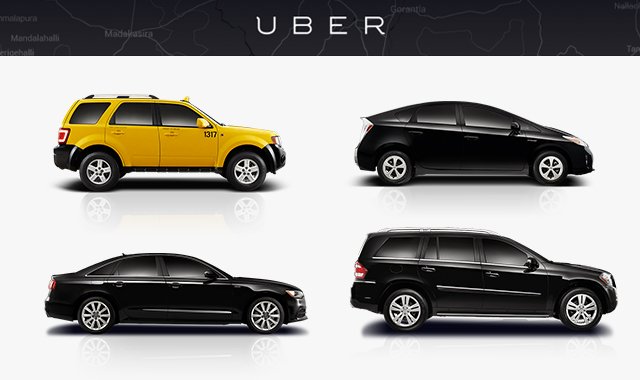Consider this: it’s raining on a Saturday “night” at three a.m., and you’re alone (and possibly tired/wasted/lost/cold etc. You could try to catch a cab (‘try’ being the operative word here), but the odds of that happening are slim at best. So you brave the rain and drudge on home, right? Wrong! Because with Uber, the most valuable startup that has sparked a transportation revolution, car-less civilians can be set up with a luxury vehicle in (literally) a matter of minutes—all from an app.
To its humble beginnings as any other standard Silicon Valley startup, Uber (originally based in San Francisco) has already expanded to a staggering forty-five countries. Uber’s piece-of-mind-enhancing features—from background checks, driver profiles, and anonymous feedback—along with its quick service are what really sets it apart from typically taxi services.

Via Uber
Once you create an Uber account, all it takes is a few clicks (where you’re located, what kind of car you would prefer, finalizing the transaction with the “request” button) before you never have to worry about getting caught in the rain again (or, say, when you oversleep/loathe subways/just because you’re feeling tired). Valued at an approximate $18.2 billion, Uber effortlessly beat out other profitable startups such as Airbnb, Dropbox, and Xiaomi—all of which are valued at a considerably lesser $10 billion, according to Statista.com.
CEO Travis Kalanick said, “The company has evolved from being a scrappy Silicon Valley tech startup to being a way of life for millions of people in cities around the world,” Kalanick told Fox Business. He says that it is Uber’s “mission to turn ground transportation into a seamless service and to enable a transportation alternative in cities that makes car ownership a thing of the past.”

Via Business Insider
With an annual revenue of approximately $213 million for 2013, according to TechCrunch.com-confirmed financial statements, it is safe to say that Uber will continue to be a constant power force in the transportation industry (not that the company is a stranger to a fair share of driver protests and bad publicity). It is quite evident that Uber’s smalltime startup days are officially over, with global expansion happening every day, and new additions to the company (such as UberPool, a kind of carpooling service designed to cut transportation costs even further, and UberRush, a Manhattan-only delivery service) taking off.
Will Uber’s consistent profits continue to reign supreme in the transporation industry? Do they ever plan on expanding their services (perhaps bringing UberRush to other cities—and maybe even countries—if it succeeds in Manhattan?) to more residential areas? All of these questions are just some of the daily issues and conundrums faced by any growing startup.
Photo Via Uber






























Comment Template